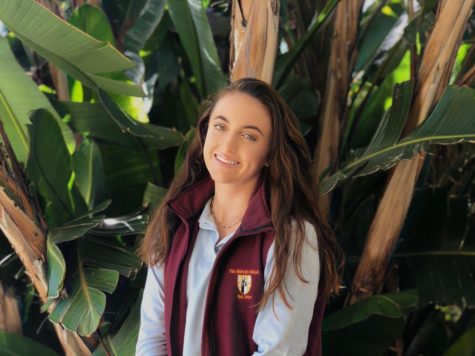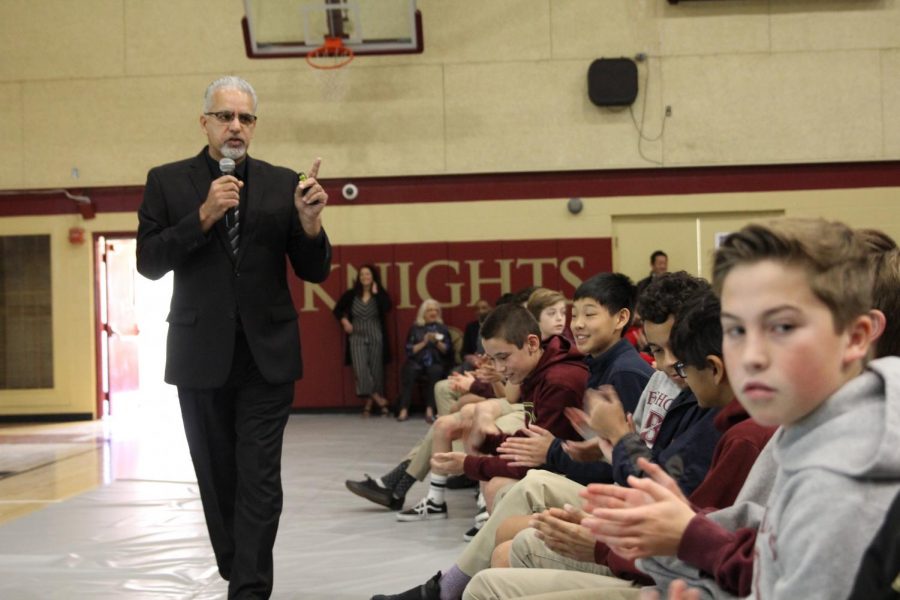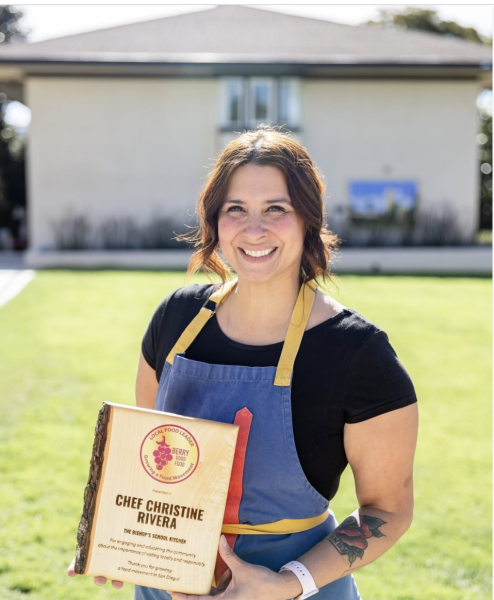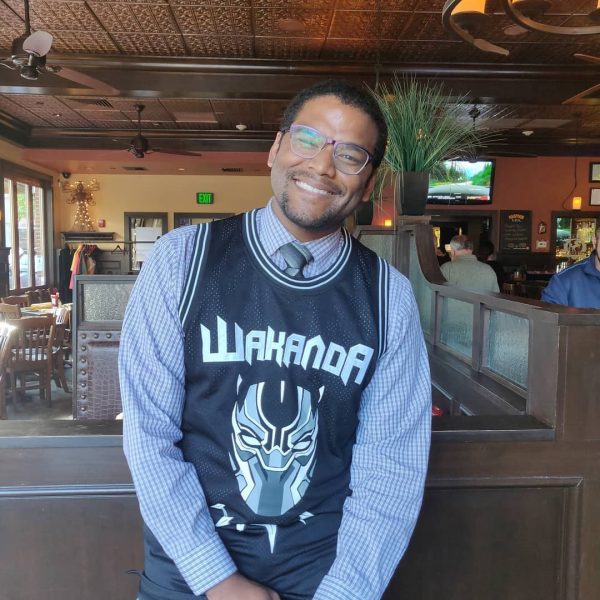A Two-Man Race: Michael Brunker Speaks On Black History Month
Michael Brunker walked around a lot during his talk, moving up and down aisles and across the front of the audience, keeping students interested by changing the pace of the assembly.
“There are things you will hear today that you’ve never heard before.”
This was the opening line of Michael Brunker’s talk on Black History Month given at the all-school assembly on February 6. The Bishop’s Black Student Union (BSU) brought Brunker to campus. BSU member Jada Davis-Mack (‘21) feels that Brunker coming to campus was “a great way to educate people about Black History Month.”
Brunker started his career as a basketball coach for many teams including the University of Detroit and the NBA Detroit Pistons. He was recently named 2019’s Mr. San Diego by the San Diego Rotary Club for his dedication to his position of Executive Director at the Jackie Robinson Family YMCA in National City, San Diego, for the past 22 years.
Brunker’s talk, titled “A Two Man Race: A Detroit Perspective on Jackie Robinson’s and MLK Jr.’s Impact on Race in America,” was centered on the words and actions of these two men during the Civil Rights Movement and their influence on today’s society.
Brunker was born and raised in Detroit, Michigan, where he experienced racism while watching the Civil Rights Movement unfold. At one point during his presentation, Brunker put an image of the Detroit Riot of 1967 on the screen, paused, and—looking straight ahead—said, “I witnessed this.” During the talk, he also discussed questions that he was often asked growing up, highlighting his peers who were confused about his racial background. He explained that many of them would simply ask him: “What are you?” If asked this question now, Brunker said he would respond with “If you can guess, I’ll tell you,” as a way to reverse the interrogation and make the questioner consider the meaning behind what they asked him.
Soon after his speech began, Brunker told the student body about the influence that Jackie Robinson had on the YMCA on 135th Street in Harlem, New York. “The kids there looked up to him,” he noted. He then compared the dynamic between Robinson and the YMCA children to the dynamic between the upper and middle schools at Bishop’s. Brunker gestured towards the upper schoolers, telling them that their voice “can have an impact on the middle schoolers,” encouraging that impact to be a positive one.
At many points during the assembly, he asked the audience to participate. He invited students in Associated Student Body Council (ASBC) and students who are playing four sports to stand up and be recognized. He also asked students with younger siblings to think about the ways that they could more positively interact with their brothers and sisters.
He also asked students to raise their hands if they agreed with the statement: “The right of every American to first-class citizenship is the most prevalent issue in the country today.” When approximately five students raised their hands, Brunker said with a laugh,“I’m assuming if you guys were paying attention, you all would have raised your hands.”
During his talk, Brunker often turned to the faculty to give them recommendations for course material that would foster the continuation of this conversation about using students’ influence for good. He suggested, for example, integrating Martin Luther King Jr.’s book, Facing the Challenge of a New Age, into Bishop’s English classes.
The goal of Brunker’s talk was to encourage students to make small changes that will have big impacts: meet new people, help others, and use your influence for good. “Don’t just sit on the sideline,” he told the community, “get up off the bench and jump into the most important game of all: life.”

Lucie Edwards joined The Tower near the beginning of her sophomore year, where she developed a love for graphic design and layout. In her free time, she...







Michael Brunker • Apr 27, 2020 at 8:36 PM
Lucie, I am seeing this wonderful article for the first time and want to thank you for the coverage. I pray you and yours are doing well. Pretty amazing how things can change in ninety days. You too are a witness. Keep telling your story! Michael Brunker